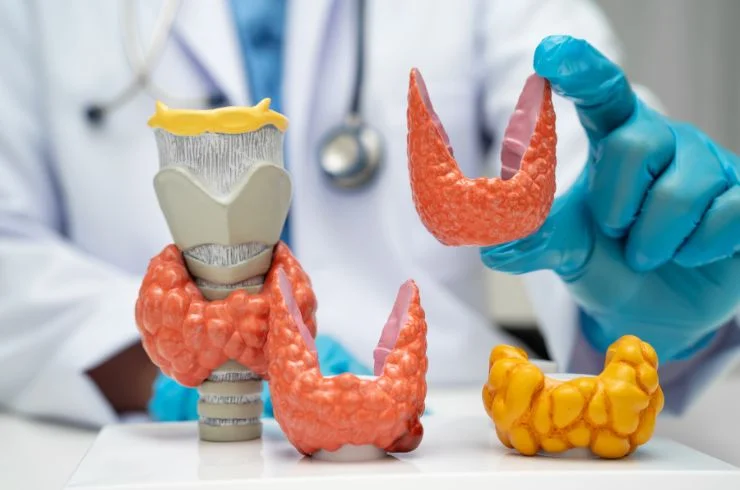Thyroid Disorder

Thyroid disorders involve abnormalities in the function of the thyroid gland, a butterfly-shaped organ located in the neck. The thyroid produces hormones that regulate metabolism, energy levels, and growth. The two most common types of thyroid disorders are hypothyroidism and hyperthyroidism.
Hypothyroidism occurs when the thyroid does not produce enough thyroid hormones. This can lead to symptoms such as fatigue, weight gain, cold intolerance, depression, constipation, and dry skin. Common causes include Hashimoto’s thyroiditis (an autoimmune condition) or iodine deficiency. Treatment usually involves taking synthetic thyroid hormone replacement, such as levothyroxine, to restore normal hormone levels.
Hyperthyroidism, on the other hand, occurs when the thyroid produces too much hormone. Symptoms include weight loss, rapid heartbeat, anxiety, irritability, heat intolerance, and tremors. Graves’ disease (an autoimmune condition) is the most common cause, but other factors like thyroid nodules or inflammation can also lead to hyperthyroidism. Treatment options include antithyroid medications, radioactive iodine therapy, or surgery, depending on the severity and underlying cause.
Thyroid disorders are diagnosed through blood tests measuring levels of thyroid hormones (T3, T4) and thyroid-stimulating hormone (TSH). Regular monitoring and treatment are necessary to manage the symptoms and prevent complications such as heart problems or infertility.
